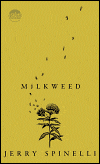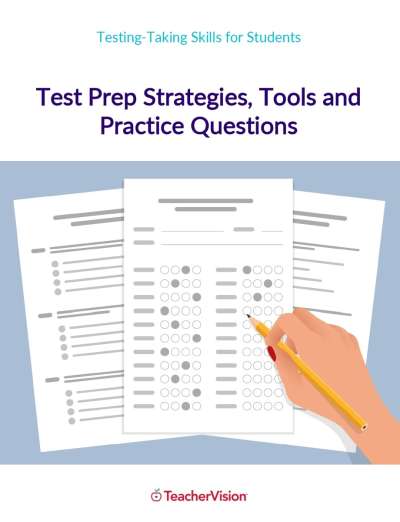Authored by:
Last edited: January 23, 2020
In Milkweed, author Jerry Spinelli paints a vivid picture of the streets of the Nazi-occupied Warsaw during World War II, as seen through the eyes of a young orphan. This teacher's guide, which includes summary, discussion questions, and activities, will help in your instruction of the novel.
Page 1 of 2
Milkweed
by Jerry Spinelli
 Newbery Medal-winning author Jerry Spinelli paints a vivid picture of the streets of the Nazi-occupied Warsaw during World War II, as seen through the eyes of a young, heartbreakingly naive orphan known as Misha. Readers will love Misha the dreamer and his wonderfully poetic observations of the world around him, his instinct to befriend a Jewish girl and her family, his impulse to steal food for a local orphanage and his friends in the ghetto, and his ability to delight in small things even surrounded by the horror of the Holocaust. |
Enrichment Activities
Resources
Books
Enrichment Activities
Role Playing This exercise will get your students into the nitty gritty of the story! First, assign one character from the book to each student, and ask them to write down three to five questions that they would like to ask that character. You may assign only major characters, or you may choose to use all characters from the book (see the lists, below). Since Misha’s various names represent different portions of his life story, you could also consider using each “identity” as a different character. Next, have each student pair off with a student who has questions for a different character, and begin the role play. For example, say Student A has questions to ask Uri. His partner, Student B, will role play Uri and answer the questions. Then Student B will ask his questions about Janina, and Student A will answer them. Major Characters
Misha (AKA Stopthief, Misha Pilsudski, Misha Milgrom, Jack Milgrom, Poppynoodle)
Uri
Janina
Mr. Milgrom
Doctor Korczak
Uncle Shepsel
Minor Characters
Kuba, “the clown,” who stole the lamp of the naked lady
Ferdi, who blows smoke
Olek, who has one arm, and who believes in angels
Enos, who is “grim-faced,” and doesn’t believe in angels
Jon, who is “gray and unspeaking”
Big Henryk, who wears bank coin bags for shoes
Mrs. Milgrom, Janina’s mother
Buffo “Fatman,” the Flop
Elzbieta, the farmer’s wife
Vivian Milgrom, Jack Milgrom’s wife
Katherine Milgrom, Jack Milgrom’s daughter
Wendy Janini Milgrom, Jack Milgrom’s granddaughter
Letter Writing
Ask students to write a letter to Misha. They can say and ask whatever they like. Invite them to share their letters with the rest of the class, if they feel comfortable doing that.
Research Activity
Dr. Korczak, who runs the orphanage in the story, was a real person. There was even a play written about him and his orphans. Ask your students to research Dr. Korczak and write about his life and his notable quotations. To get them started, direct them to: http://korczak.com/Biography/kap-23.htm
Looking for What's Good
Milkweed does not shy away from the horror and devastation of life in Warsaw in 1939. Yet throughout the book there are glimmers of normal life, happiness, and hope. Ask students to glean those instances through a close examination of the story. Then everyone can share and discuss their lists of "what's good." Ask them what they think the author was trying to accomplish with those positive notes.
Learning About the Holocaust
Direct students to the student page of the U.S. Holocaust Memorial Museum, where they can do some online activities.
http://www.ushmm.org/education/forstudents













